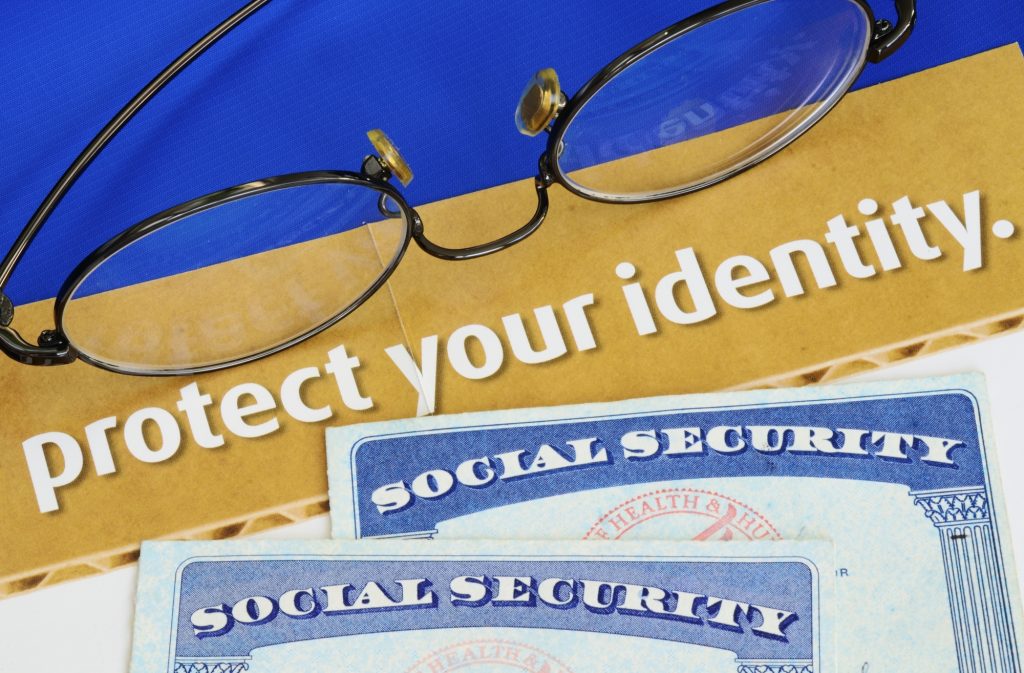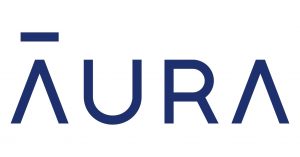In this day and age of information overload via many information channels, including social media platforms, many people are unaware or naive about the kinds of information that should be shown to the public and those that must remain private. Information like your Social Security Number (SSN) and Date of Birth (DOB) may seem harmless, but you will find out this is not so.
And here’s the big question, “what can a scammer do with the last 4 digits of my social security number?” The short answer is A LOT. And most of it is not good for you.
In 2013, news broke out that hackers stole social security numbers from well-known celebrities, including Michelle Obama, who was then the First Lady of the United States. This scenario goes without saying that if hackers can hack Michelle Obama’s SSN, they can do it a lot easier to the average American.
Moreover, a 2017 study revealed stolen SSNs are more prevalent than stolen credit cards. SSN breaches accounted for 35 percent while credit card fraud was only at 30 percent. Aside from that, the common victims of SSN theft are the very young and very old.
Since children aren’t aware of their SSN, scammers use this opportunity to commit “an almost foolproof” SSN fraud. If you have a child with SSN, monitor it regularly to detect discrepancies or malicious activities.
Also, the elderly, due to their old age, are prone to scammers as well because some old people can be easily swayed by sweet talk or pretentious calls.
In this article, you’ll learn the importance of keeping private information “confidential” because revealing it to anyone has many significant consequences, including identity theft, which could leave you financially compromised or even get you into serious trouble with the law.

How Can Scammers Use Your SSN?
Your SSN is a powerful nine-digit number for an American citizen. With an SSN, you can enroll in medical insurance, secure retirement funds, open financial accounts, and apply to various public and private services.
While revealing this information to trusted individuals is safe, giving it to scammers puts you at the gravest disadvantage. With your SSN, scammers can buy and sell things under your name.
And much worse, they can use it to apply for loans and credit cards under your name.
You might wonder, “But hey, my SSN is a nine-digit number. Knowing the last four digits and my date of birth won’t matter anyway. So, why should I worry about it?” Again, the short answer is you should worry about it a lot.
Why? It’s because scammers only need the last 4 digits of SSN and DOB to commit fraud. They can apply for loans, buy things, and even get medical benefits from you.
Even with just the last four digits, scammers can use complex computer algorithms to guess the rest of your SSN.
What Should I Do If My SSN Has Been Stolen or Being Used Without My Consent?
Identity theft is alarming, especially that it can happen with just the last 4 digits of SSN and DOB. Now, your next question could be, “how do you put an alert on your social security number that has been stolen?”
When you receive suspicious notices, alerts, billings, or notice peculiar happenings, you need to do the following immediately:
1. Contact the Federal Trade Commission
Upon knowledge of theft, loss, or misuse of your social security number, you can file an identity theft report at the Federal Trade Commission (FTC). This report can help prevent future fraud that the thief may commit.
If someone has already used your SSN for fraudulent purposes, call the Social Security Fraud Hotline at (800) 269-0271.
If you’ve accidentally exposed your SSN, we personally highly recommend using Aura to regain control of your Social Security Number. We personally tested Aura and found their monitoring, alert and restoration services to be extremely efficient and time saving. They are offering a 14-day free trial at the moment, which includes monitoring of your SSN, bank accounts, credit reports, and access to US-based restoration services.
To further protect you in case you’ve already given out your Social Security Number, you’ll get:
- 24/7 SSN Monitoring
- A team monitoring the dark web for people selling your personal information, and alerting you if anything appears.
- Monitoring of your credit reports (fraud usually shows up on your credit reports and ruins your credit)
- A personal case manager that can help you recover from any identity theft problems.
You’ll even get a $1 million insurance policy and stolen funds reimbursement. This means that your financial situation will remain SAFE EVEN IF fraudsters have your personal information (they won’t be able to get away with it).
2. File a Fraud Alert
To prevent further losses from identity theft, you can file a fraud alert to a credit bureau as financial institutions would very likely check your credit report before lending you any money or accept any financial transactions.
Financial institutions will also take precautions if someone tries to obtain credit under your name. Immediately file a fraud alert when your SSN has been stolen.
With a fraud alert in your credit report, you can rest assured that your credit rating will not be affected as a result of a scammer’s fraudulent acts.
Here are the links to the three bureaus where you can file the fraud alerts:
- https://www.experian.com/fraud/center.html
- https://www.equifax.com/personal/credit-report-services/credit-fraud-alerts/
- https://www.transunion.com/fraud-alerts
3. Set up Identity Theft Protection
There is no way to stop scammers and fraudsters from knowing your personal information once you give it away. And often, you’ll never be able to find out who has it. This is because scammers and hackers will often sell your personal information in bulk to numerous fraudsters over places such as the dark web.
However, you can still protect yourself even if fraudsters have your personal information.
Consequences of Identity Theft
If you’re not careful about your confidential information like the SSN, identity theft can do this to you:
- Destroys credit reputation. When someone steals your SSN, they can apply for loans and max out your credit cards. And when you can’t make payments, it’ll severely and adversely impact your credit score. And since you’re not aware of this in the first place, you’ll be left with a huge sum of debt that you didn’t even benefit from.
- Affects financial stability. As scammers use your SSN privileges, you will have a hard time availing them when you need them the most. As long as this identity theft case remains unresolved, you’ll have a hard time availing of services granted to holders of a social security card. For example, you cannot demand retirement benefits if the scammer claimed it under your name.
- Ruins professional reputation. Being associated with an identity theft case can have an impact on your professional reputation. It can even cause job termination, and future employers might decide to reject your job applications.
- Severs family relations. Banks and credit card companies will do everything to collect your debt, including garnishment of property. This situation can cause trouble in the family and destroy good relationships.
- Impacts mental health. As a victim, your emotions and feelings can take a toll from all the pressure and stress that identity theft has brought to your life. You may experience depression, anxiety, or fear, depending on how you deal with the situation.

Kinds of ID Theft Using a Social Security Number
According to the Consumer Sentinel Network Data Book 2018, identity theft accounts for 14.85 percent of all reports, ranking third in the list of all reports. Moreover, cybercrime losses rose significantly in 2019, with an estimated $3.5 million.
Financial Fraud
Of all kinds of identity theft, financial fraud appears to be at the top of the list. The Insurance Information Institute reports that credit card fraud accounted for 45.7 percent of identity theft in 2019. These cases were concerning new accounts.
In credit card fraud, the criminal applies for a new credit card account. Of course, he will use your SSN, name, and other personal information for the account.
Once the application is approved, the criminal will max out your credit card, leaving you with a large amount of credit to settle. Below are some signs if someone uses your SSN for financial fraud:
- Unexplained charges to your credit card
- Exceeding credit card limit
- Receipt of notices about overdue payments for debts you didn’t contract
- Duplicate account registrations
Tax Fraud
Another ingenious way of stealing is through tax fraud. Scammers use your SSN to avail of the Stolen Identity Refund Fraud (SIRF) service of the government. To put it simply, scammers will file an income tax return using your name and claim the tax refund.
As for you, you’ll be left with big hassles dealing with the Internal Revenue Service (IRS) to rectify the situation.
Here are some signs of tax fraud resulting in identity theft:
- IRS notices about suspicious returns
- Troubles in filing tax returns
- Additional tax obligations
- Income sources coming from fictitious employers
Medical Fraud
Swindlers can use your SSN to avail of medical services that you are entitled to. They’ll pose as you and claim the medical benefits for themselves.
Being a victim of medical fraud can create problems between you and your health insurance provider. Here are some signs if someone’s stealing your medical benefits using your SSN:
- Denial of coverage
- Collection notices out of nowhere
- Notice of reaching plan limits
- Billings for medical services you didn’t avail of in the first place
Criminal Intents
Scammers can use your SSN as a “get out jail free card.” For example, the scammer gets a speeding ticket from a traffic enforcer.
To avoid getting caught, the scammer will use your identity. In the end, you’re the one in trouble with law enforcement. Here are some signs of this kind of identity theft:
- Receipt of warrants coming from law enforcement
- Bad police record
- Existence of a criminal record
- Discrepancies when dealing with government agencies and departments
Utility Fraud
The Consumer Sentinel Network Data Book 2018 ranks mobile telephone registration as third in the top five common identity theft cases. In this fraudulent act, scammers apply for utility accounts under your name and leave it unpaid.
When you become victim to this scam, you’ll have a negative record with utility companies, which will then affect your credit score. When this happens, here are the signs that you’re a victim to this scam:
- Receipt of unidentified billings from utility companies
- Receipt of calls regarding unpaid balances
- Receipt of email alerts from companies you didn’t sign-up with
- Reduction in the credit score due to overdue bills

Preventing SSN Theft
Although SSN theft is widespread, you need not be a victim of it if you follow certain precautions in protecting your confidential information. Here are some tips you can follow to avoid SSN theft:
1. Memorize Your SSN
No one can steal what’s in your head. If you need to present your SSN now and then, memorizing it is your best option. There are only 9 digits to remember.
2. Leave Your Social Security Card in a Secure Place at Home
Never bring your card with you all the time, everywhere. If you need to present valid IDs, don’t use your social security card.
When you do daily tasks, you don’t need your social security card with you all the time. Leave it at home instead, and keep it in a secure place.
So in case someone stole your wallet, your SSN cannot be used for malicious acts.
3. Avoid Giving Information to Untrusted Sources Online
Are you familiar with phishing? When you receive an email or call from a “reputable” entity, you should exercise caution in providing information about you. In a phishing scam, the scammer can pretend to be your credit card company.
Most of the time, these scams ask you security questions in your account.
For example, the scammer may ask, “what’s your first pet’s name?” By providing the answer to that question, you’re merely giving the scammer the key to the lock. So when there’s a suspicious email or call pretending to be some company, don’t immediately disclose confidential information.
4. Never Mention Your SSN to Anyone
If you want to protect yourself from identity thieves, the golden rule is to never mention your SSN at all, especially in public. When filling up a form requiring your SSN, cover it with your hand and be discreet about it.
When showing your card, make sure only the clerk will see the number.
5. Use Identity Theft Protection Services
An identity protection service is beneficial if you’re concerned about your private information, including your SSN. They usually charge a small fee – (up to $20 a month) to protect you from a lifetime of financial damage.
If you’re unsure which identity protection service to go with, we highly recommend using Aura. After numerous comparisons and reviewing, they’re one of our top picks for their US-based team and sophisticated systems scanning for breaches of your personal info 24/7.

- 24/7 SSN Monitoring
- A team monitoring the dark web for people selling your personal information, and alerting you if anything appears.
- Monitoring of your credit reports (fraud usually shows up on your credit reports and ruins your credit)
- A personal case manager that can help you recover from any identity theft problems.
You’ll even get a $1 million insurance policy and stolen funds reimbursement. This means that your financial situation will remain SAFE EVEN IF fraudsters have your personal information (they won’t be able to get away with it).
Conclusion
Scammers can use different ways and means to steal your identity by using the last 4 digits of SSN and DOB. With this information in their hands, they can steal your money, create credit card accounts, take away your hard-earned benefits, and use your name for illegal transactions.
Though identity theft is prevalent during these times, the Government and some private companies offer remedies and solutions in case you’ve become a victim of identity theft. But as long as you perform the necessary steps to keep this information confidential, you can sleep soundly at night without worrying about scammers using your identity.
